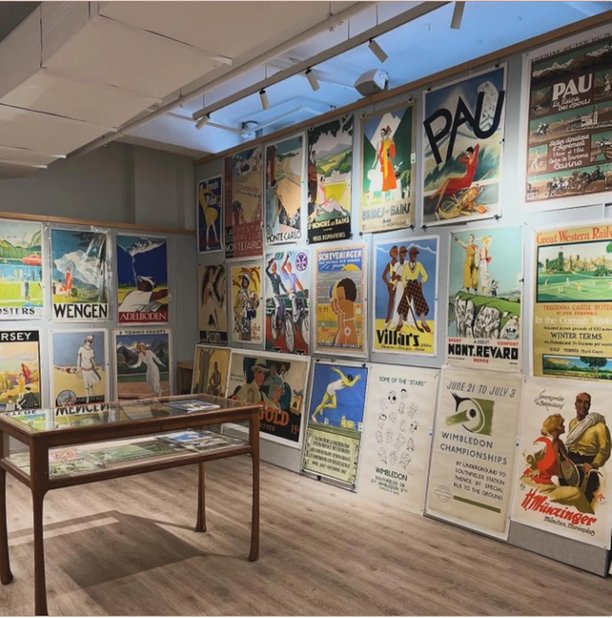The Daily Heller: The Poster Child for Poster Auctioneers
- 06/14/2024
- Steven Heller

Nicholas (Nicho) Lowry knows his stuff and has a lot of stuff to know … about posters. He is the president of New York’s famed Swann Auction Gallery, one of the major go-to venues for trading and selling posters, and one of the on-screen experts on the beloved PBS “Antiques Roadshow“—totally identifiable by his Simon Legree waxed mustache and an endless sartorial array of tartan plaid three-piece suits.
Lowry is a character, a poster child for the important value and revealing mysteries of how each poster represents the era in which it was first made. For Lowry, posters are not just printed pieces of paper, they are entry points into the worlds in which they were created.
As curator of the current Poster House exhibition on New York travel posters, on June 20 at our next session of the PRINT Book Club, Lowry and fellow curator Angelina Lippert will discuss the book/catalog that bears his byline—and I think it is a propitious time for PRINT readers to learn more about this poster expert.
At the recent event celebrating Poster House’s fifth anniversary, you casually mentioned you’re now 30 years into the poster business. The Swann Galleries have been in your family for a long time. How did you become interested in posters?
Swann Galleries was actually founded by my grandfather’s nephew, Benjamin Swann, back in 1940. My grandfather, Louis Cohen, founded New York’s Argosy Bookstore in 1925 and was avidly acquiring books. In the late 1930s he bought a library that was so big that he couldn’t absorb it into the store and so he put his nephew into business as a book auctioneer. For the first few years of Swann’s existence, all the house did was sell books from that original collection. In 1969 when Ben Swann was ready to retire, my father bought him out and ran the business until 2000, when I took over.
My interest in posters, however, predates my time at Swann, and actually began (officially) when I worked at the Argosy briefly in the mid 1990s. On one of the bookstore’s upper floors was a storeroom which my grandfather had filled with World War 1 propaganda posters he had purchased over the years. Hundreds and hundreds of them, each one with a cardboard backing and covered with stiff acetate that had been stapled all around the edges. At this incredibly early point in my “career,” I didn’t really know what I wanted to do. But I did know that every member of my extended antiquarian family had their own area of expertise. My mother was a specialist in modern first editions, my father was an autograph specialist, my grandmother was a map specialist, etc., etc., and I knew that if I ever did enter the family business that I wasn’t interested in following in any of their professional tracks, per se.
You can read the entire article within the Daily Heller at Print magazine.
